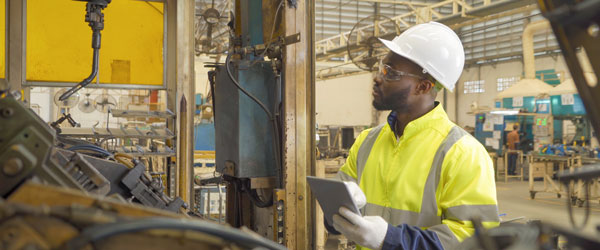Case Study
H2OSatellite
ALWAYS-ON AVAILABILITY opens new horizons for maritime communications company
H2OSatellite has been an established provider of IT communication systems to the maritime industry since 1998. With over 3000 ships already equipped with their innovative robust solutions, the company has an established reputation for excellence. Focusing fully on the specific needs of customers, and on finding best practice fixes by keeping ahead of the curve on both IT innovations and maritime legalities, is just how they do things at H2OSatellite. So, when a potential customer approached them with a problem that coincided with a recent discovery in their research and development program they were quick to design and implement a solution.
Business Situation
The solution, H2OUptime, not only solved this customer’s unplanned downtime issues, it also revealed new horizons for H2OSatellite.
Quick Facts
Solution Profile
- Stratus’ always-on availability enables new product innovation, opening up the whole shipping market for H2OSatellite
Solutions
- Stratus® ftServer® systems
- Thin client architecture
Services
- H20Satellite
Business Objectives

H2OUptime, H2OSatellite’s new marinized server network, came about following a period of research and development focused on finding a way to replace the high-risk PC networks common to most ships, with a more secure and resilient network system.
First findings suggested the way forward was a central server and thin client architecture. Indeed a competitor was already offering a solution based on networking two servers and replicating data between them. This approach would address security issues, such as vulnerability to viruses. It also, however, introduced two new issues: resilience (and the associated risk of downtime) and operational complexity. Further research uncovered clustering as an option. This though, whilst partly addressing the resilience issue, still introduced operational complexity.
Lee Black, IT systems manager at H2OSatellite explains “The problem with introducing a central server and thin client architecture is that if the server fails, it can take anywhere from thirty minutes to three and a half hours to get the environment back up and running—and that’s if there’s someone onboard who knows what to do. Most ships do not carry IT managers. Most shipping companies simply cannot afford the risk of downtime.
“Thinking around this issue, searching for an alternative solution, we came across Stratus and its suite of fault-tolerant servers. The architecture of fault-tolerant servers removes the failure restart scenario (downtime) and introduces operational simplicity. At the same time, a customer using such a central server thin client set up came to us with a problem. Their server kept failing and the associated downtime was costing them dearly. How could we help?
“So, whilst the specific objective for this client, initially, was to provide guaranteed uptime, the solution we finally delivered did more than just guarantee uptime. It delivered a technically elegant solution. Our customer loves the fact that, if there is a failure, nobody on board has to do anything at all. The fault-tolerant architecture simply rides through the failure. All the crew has to do is receive a call from one of our support team scheduling delivery of a new component at their next port of call.”
The solution, which has since been branded H2OUptime, impacts deeper than just assuring availability and operational simplicity though, as H2OSatellite’s founder and managing director Robert Kenworthy explains.
“Now we have the whole market as prospects …”
Robert Kenworthy
Managing Director
H2OSatellite
Business Impact
“The impact for H2O customers is enormous.”
“A ship’s communications network is very, very vulnerable. Ships by their nature are physically isolated when at sea. Not many ships have IT Managers aboard, so if anything goes wrong it can be catastrophic.”
“And plenty can go wrong: passengers and crew members bring memory sticks and DVDs on board, which could contain any number of viruses. Inserting these into PCs networked together is a high-risk strategy.”
“We realized a few years ago that there was a huge need for a safer way to build communication networks on ships, and that while the server and thin client architecture answered some of the issues, it did not offer a complete solution. It was not until we came across Stratus and ftServer that we realized we could actually do something that would push networks down the secure server route, without introducing the risk of downtime. The fact that a client came to us with exactly this problem gave us all the momentum we needed to create a first class, first-to-market solution.”
“System failure on a ship can have massive commercial, financial, human and safety consequences in today’s world. Super yachts, super tankers, tankers, cruise-liners and super containers, for example, all rely on emails to communicate engine performance, cargo status, notice of arrival to the US coast guard (new legislation introduced since 9/11), for example.”
“Take the latter requirement: notice of departure and arrival. If a ship fails to provide this, it is not allowed in US waters. The potential loss of income this can cause for just one ship is up to $33,000 per day. When you add to this the human impact on crew and other passengers of being unable to communicate with loved ones on land, or access entertainment onboard, plus the potential risks of the ship not receiving a crucial safety related message during even a split second of unplanned downtime, and it is clear that not many ship owners are going to want to risk downtime.”
“With H2OUptime, they no longer have to,” concludes Rob.
“Whereas before we were selling email systems and anti-virus packages and our prospects were ships that hadn’t got any, or had not got up to date systems, we are now selling a full scale marinized server network; we now have the whole market as prospects,” concludes Rob.
H2O’s SOS support team’s 24/7/365 availability is a great source of reassurance, the knowledge that the only thing the ship captain has to do if there is any IT issue whatsoever is make one call. And with a whole new sales pipeline to explore, H2OSatellite is delighted too.
“So, whilst the specific objective for this client, initially, was to provide guaranteed uptime, the solution we finally delivered did more than just guarantee uptime. It delivered a technically elegant solution.”
Lee Black
IT Systems Manager
H2OSatellite
About H2OSatellite
H2OSatellite is the complete maritime communications partner with more than 2200 ships already relying on its fully integrated, simple and cost effective solution. Comprising a full suite of packages from commercial messaging, spam, virus protection and crew messaging, to hardware sales installation and airtime H2OSatellite enable their customers to communicate via any transmission package available, including major satellite systems such as Inmarsat, Iridium and VSAT and also GSM, Broadband and ISDN. Since 1998, when the business started as Global Technology LTD, the company has been in the vanguard of satellite communications software development, offering customers industry leading returns on their communications investment. Key to the company’s success is its focus on providing technology with a human face via its market leading 24/7/365 customer support, and a genuinely personal touch that ensures each customer has a solution that is tailored for their specific needs.
H2OSatellite is head quartered in the UK and has a comprehensive network of partners with offices worldwide.
About Stratus Technologies
In today’s always-on world, applications run under increasingly demanding circumstances. With these escalating demands comes greater pressure to prevent even the smallest amount of application downtime. Companies are responding to this need for always-on solutions by searching for technologies that either conform to or enhance their current IT infrastructures.
Stratus Technologies’ solutions enable rapid deployment of always-on infrastructures, from enterprise servers to clouds, without any changes to your applications. Stratus products (software and servers) combined with Stratus people, enable customers to prevent downtime before it occurs, ensuring uninterrupted 24/7/365 performance of essential business operations.






